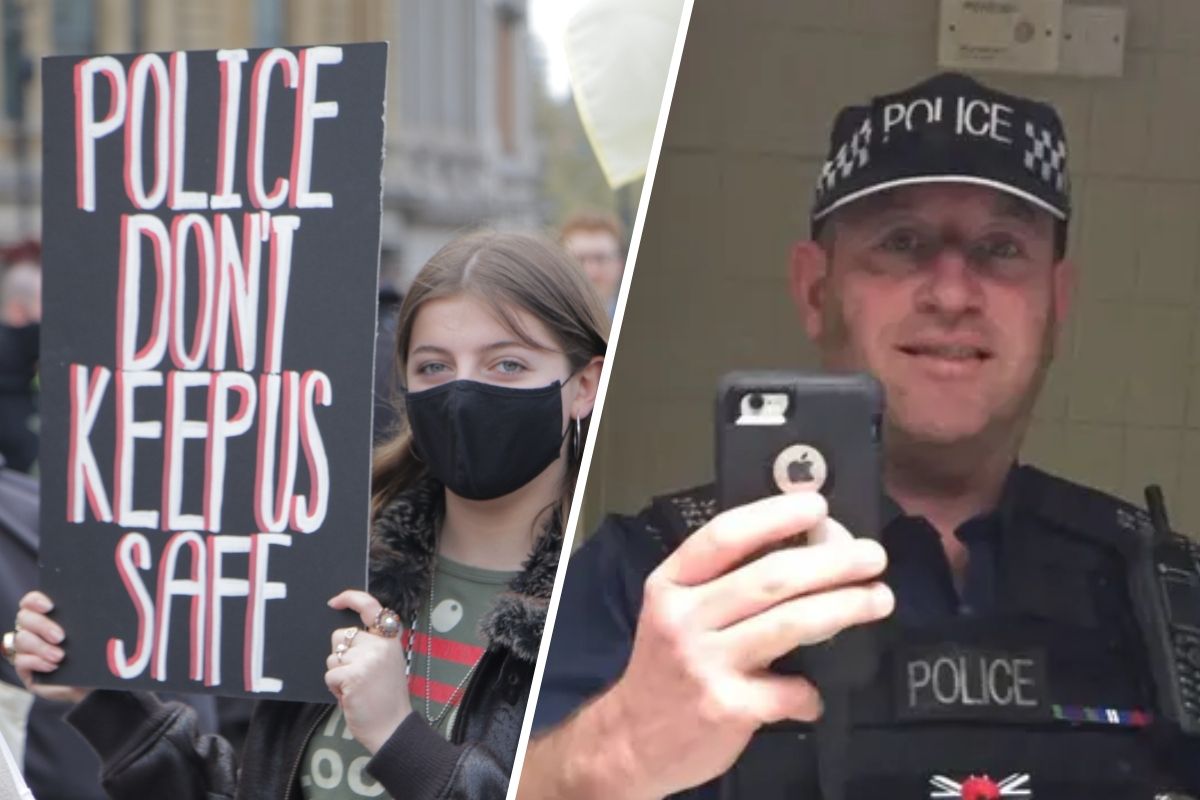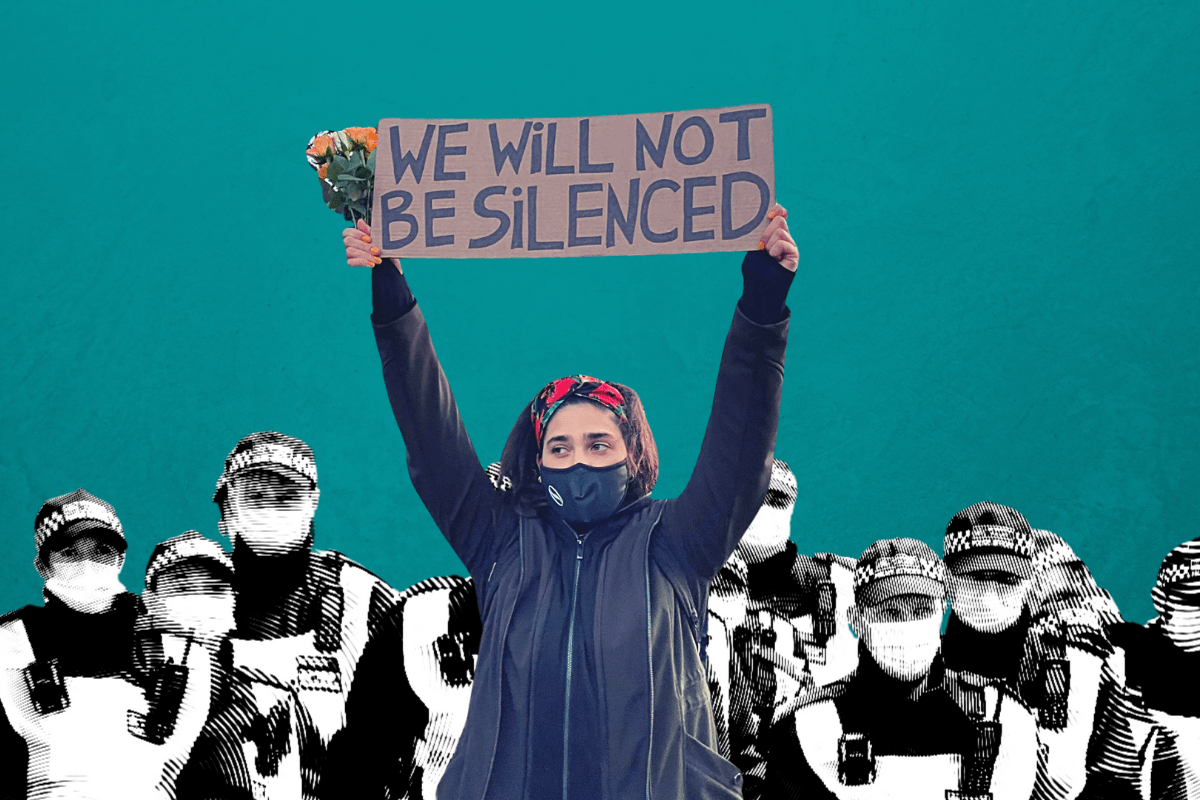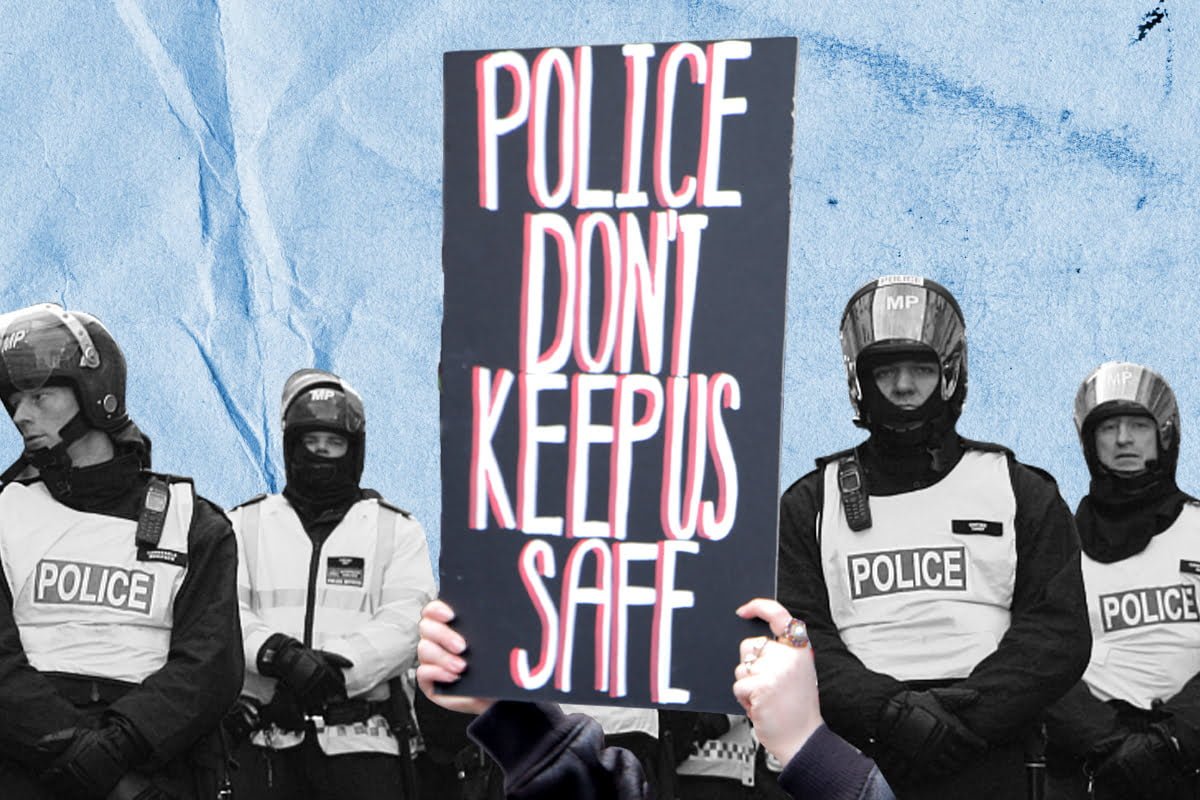This week, on 21 March, the long-awaited report from Baroness Casey – reviewing the internal culture of the Met Police – was released. For the representatives of the capitalist state, the findings are a tough read, exposing just how deep the rot runs in this key pillar of the British establishment.
By contrast, the results of this investigation come as no shock to workers and youth. Ethnic minorities and women, especially, will not be surprised to hear that the Met have been deemed “institutionally racist, sexist, and homophobic”.
The police are an important part of the state, which, as Engels and Lenin explained, ultimately consists of “armed bodies of men in defence of private property”.
The capitalists rely on oppression and discrimination – including racism, sexism, and homophobia – to divide and exploit workers. It therefore comes as little surprise to officially hear that their attack dogs reflect, in concentrated form, all the barbarism and bigotry that they are responsible for.
Toxic environment

Casey’s report details all the institutional problems that exist in the Met Police. At the same time, she makes the point that the Met is a model for policing worldwide. In turn, therefore, these same issues are endemic in all police forces internationally.
Clearly the Baroness is no revolutionary, however. The aim of her inquiry is not to expose the real class role and nature of the police, but to show that the establishment is taking seriously the crimes and scandals of the Met that have hit the news in recent years.
Her review makes it clear that the Met, by not rooting out problematic officers in its ranks, has ‘failed Londoners’. Casey also finds that racism, sexism, and homophobia permeate both the internal life of the Metropolitan Police, and the conduct of its officers when on duty.
She states, for example, that the disproportionate use of stop and search on black men has not improved since the Macpherson inquiry, over 30 years ago. The report finds that one quarter of black men aged between 15-24 were stopped and searched in 2021.
Elsewhere, one officer said that they truly believed that the failure to catch the ‘Grindr killer’, responsible for the rape and murder of four young gay men, was because of homophobic attitudes in the Met. They said that when the killing of these men was first discussed, the general attitude from their colleagues was a rolling of the eyes. In short, police did not consider the case important.
Casey acknowledges that this is not simply a question of ‘a few bad apples’, but of a toxic environment that allows backwards attitudes to fester, with officers feeling like they cannot bring forward complaints about their colleagues.
She acknowledges that this is not simply a case of ‘a few bad apples’, but of a toxic environment that allows backwards attitudes to fester, with officers feeling like they cannot bring forward complaints about their colleagues.
All of these findings are absolutely in line with what we already know from the cases of ‘bastard Dave’ and ‘the rapist’, David Carrick and Wayne Couzens, whose misogyny and abuses were well-known amongst those in their units.
Trust and ‘consent’
What Casey is most concerned about is falling public trust in the Metropolitan Police.
Her report reveals that confidence in the police as a whole has fallen from 89% in 2016 to 66% in 2022. Trust in the Met, in particular, has collapsed even faster and harder, dropping from 70% to 45% in the same period.
This is a profound concern for the ruling class, who particularly need a strong, authoritative state apparatus in this period of deepening crisis and sharpening class struggle. And the Baroness is very clear to emphasise, reflecting the establishment’s worries, that policing must be based on ‘consent’ amongst those being policed.
But where was the ‘consent’ when Met officers strip-searched Child Q, a 15-year-old black girl in Hackney? Or when they murdered Chris Kaba in cold blood?
Of course, what Casey really means is not that the police should act in harmony with working-class communities, but that the long arm of the law must maintain a certain moral authority amongst workers – so that they can be deployed all the more forcefully to smash the workers’ movement when required.
History shows this to be the real role of the police: not to protect ordinary workers and their communities, but to defend the power, property, and profits of the capitalist class.
To protect its interests, the ruling class builds a battalion of trained and armed officers, fed a diet of reactionary propaganda, who can reliably be called upon when class battles erupt.
The true class purpose of the police is obscured and concealed in times of relative peace and prosperity. Today is not such an era, however.
Instead, we are in the midst of a bitter class war. And it is becoming ever clearer to workers and youth that the police are not ‘neutral’ upholders of law and order, but a weapon in the hands of the ruling class.
Torrent of abuse
All the disgusting scandals inside the Met, meanwhile, are pouring petrol on the flames. Every new case of bigotry and abuse undermines the authority of the police even further.
And as a trickle becomes a torrent, the dam is beginning to break. One-off legal proceedings against individual officers; head-hanging from representatives of the establishment: none of this washes any more. The ruling class is increasingly aware that they can no longer sweep these issues under the rug.
Instead, these ladies and gentlemen are being forced to admit the scale of the problem within the Met; to apologise and assert just how serious and sincere they are about solving them.
Enter Mark Rowley, the new Commissioner of the Metropolitan Police, and Baroness Casey, with their latest wave of inquiries, reviews, and promises of reform.
We must be clear: none of this will come close to ending the crimes of the police.
Impotent reforms

For starters, there is the age-old suggestion of ‘representation’. Casey claims that part of the problem is that “the Met does not look like the majority of Londoners”, with 81% of officers being white, and 71% male.
Rowley has taken this up, calling for more female officers in cases of violence against women. Yet it was under Cressida Dick that the culture of sexism and misogyny at the Met came to light. And there are plenty of examples of female officers actively participating in this process, or feeling like they cannot call it out.
There have also been assurances that officers who abuse their powers will be dealt with more seriously, more quickly. Rowley, for example, is looking to change the rules so that officers can be fired more easily.
But this too will do little to help. After all, a body which exists precisely to mete out repression – on behalf of the ruling class – is always going to attract the most reactionary layers of society.
The most radical solution being proposed is to break up the Met, replacing it with an array of smaller local policing authorities. But again, under capitalism, this will change nothing.
The size of a police force makes absolutely no difference to its role and nature. Smaller-scale, local policing would still have racism, sexism, violence, and abuse woven throughout its ranks.
We can expect nothing more from an institution whose entire raison d’être is to defend and uphold a racist, sexist, violent system.
Rotten system
The ruling class are increasingly worried. With trust in the police falling, and the class struggle rising, they are stuck firmly between a rock and a hard place.
For millions of workers and youth, the last few years have been a hard school, teaching the real nature of the police: from the massive Black Lives Matter movement, which broke out over the murder of George Floyd and countless others; to all the misogyny, abuse, and scandals seen at the Met.
Baroness Casey’s report reveals that the Met is rotten to the core. And the ruling class know that they can not continue burying their heads in the sand.
What this latest review is careful not to reveal, however, is that the problem is not simply one of a bad ‘culture’; a mere failure to clean up the ranks of the police.
The ruling class requires a strong police force, composed of the most reactionary elements of society, who are more than happy to violently hold down workers and youth, in order to maintain the capitalist status quo.
A system based on the exploitation and oppression of the vast majority of society, for the benefit of a small elite and their profits, will always be violently policed.
To end the rot once and for all, we cannot place any hope in the establishment’s promises of reform. Instead, we must organise and fight to overthrow this entire decrepit system.






